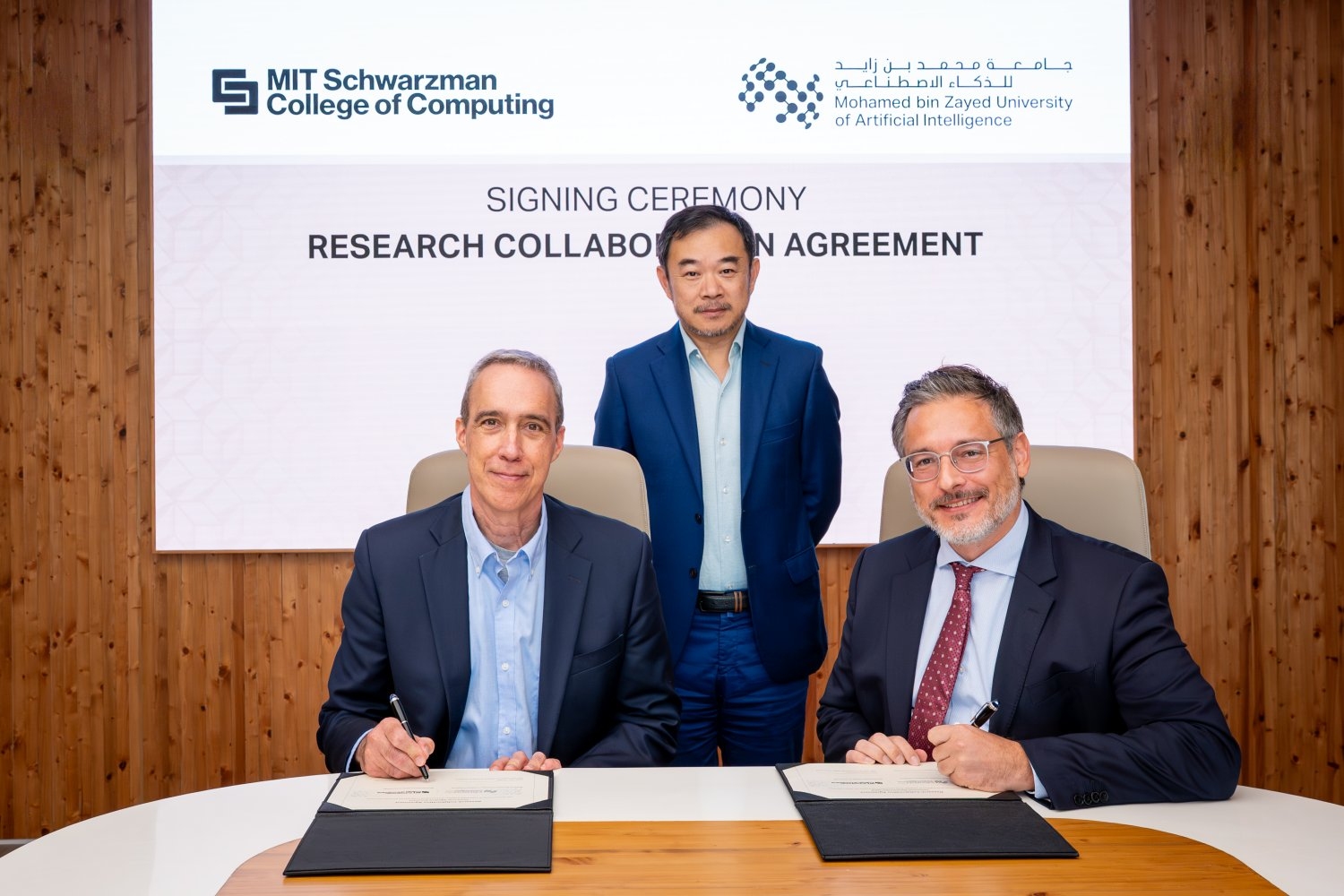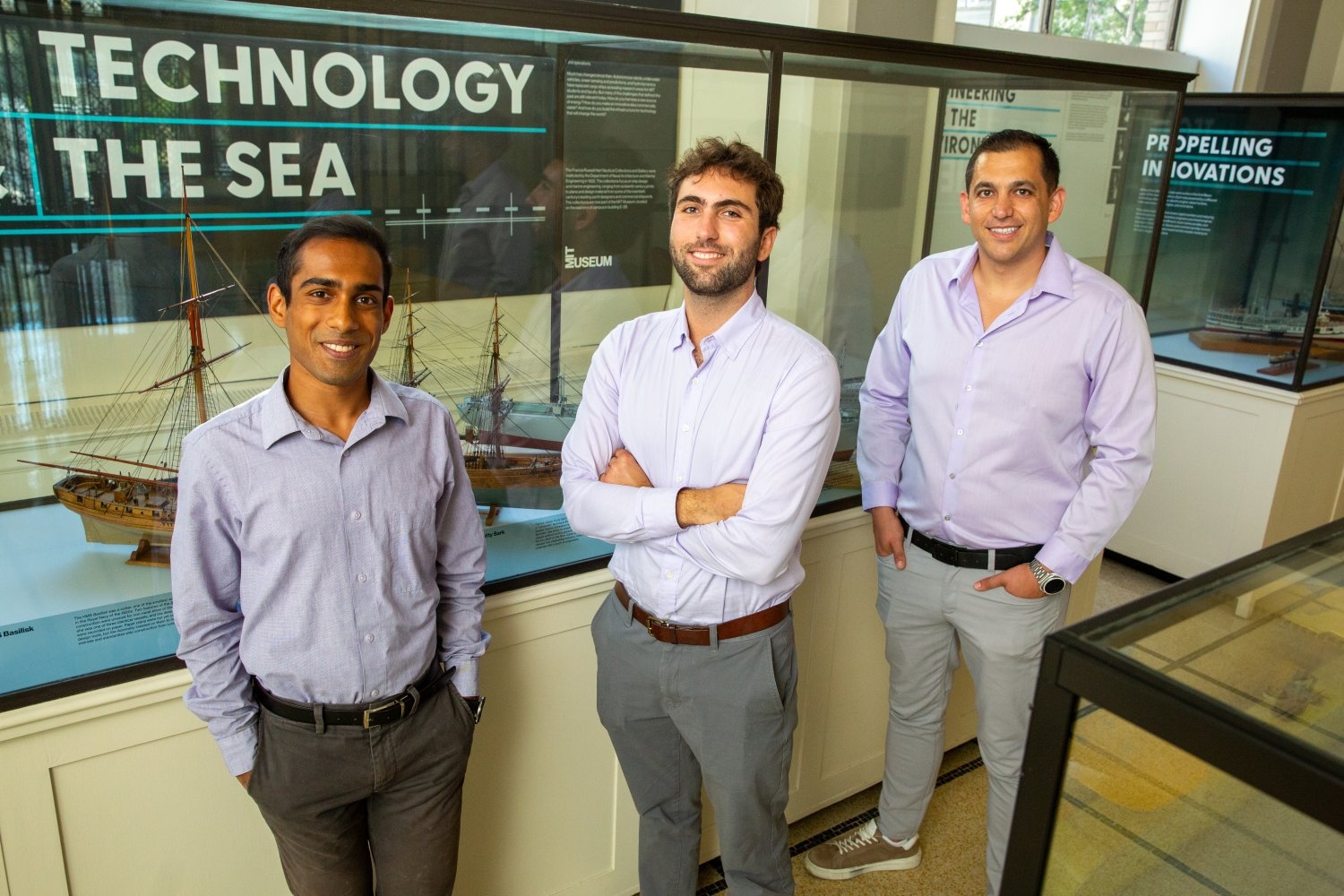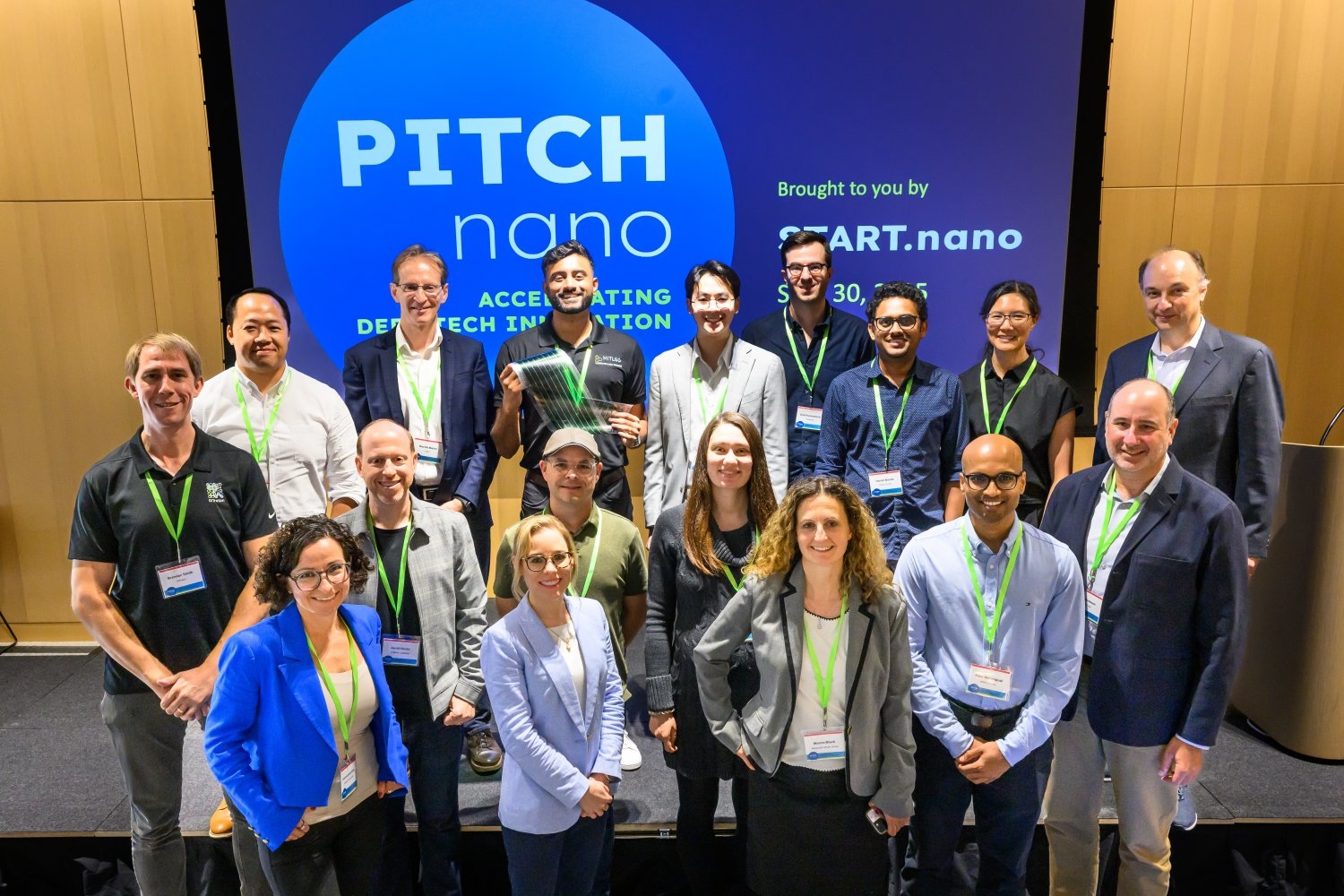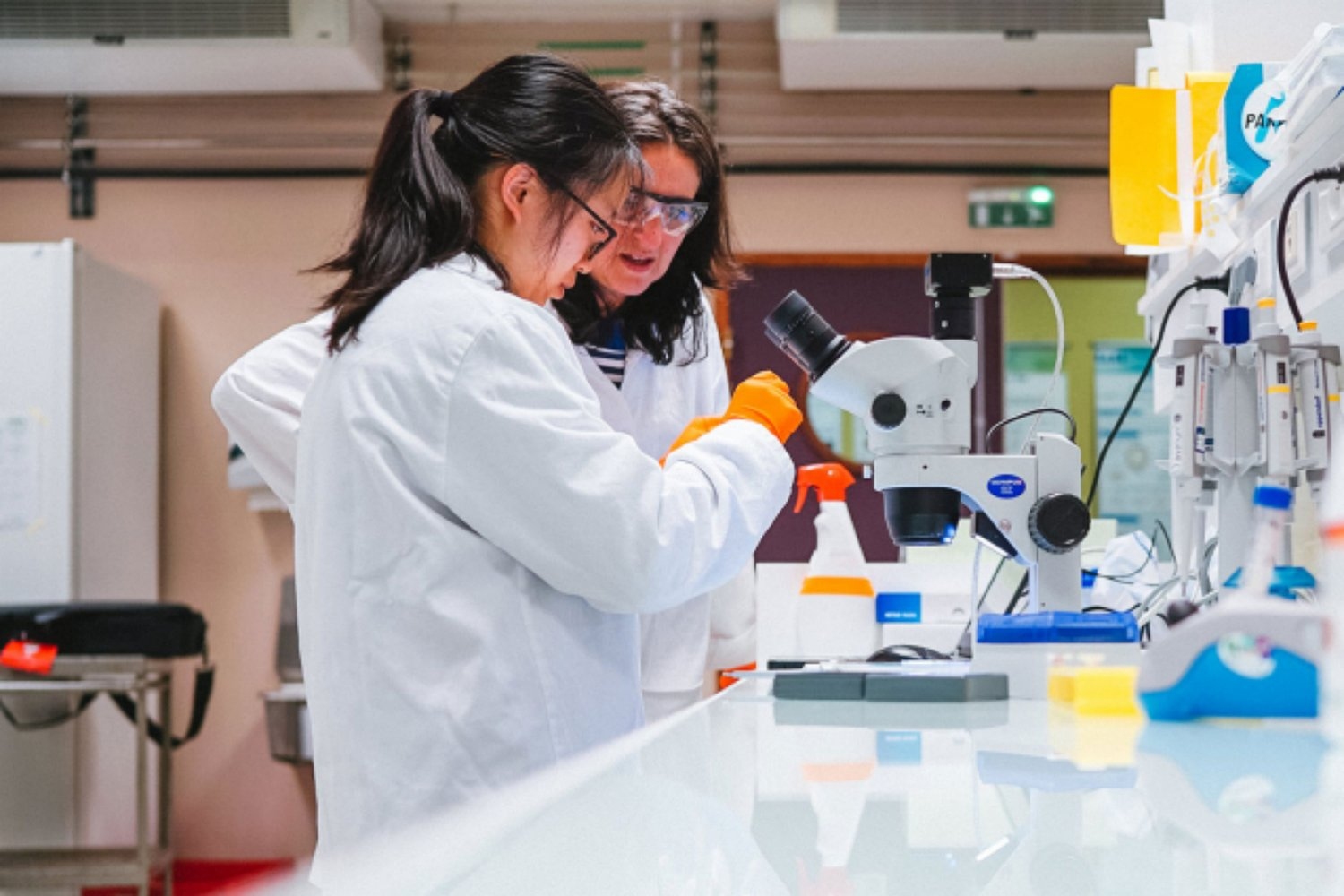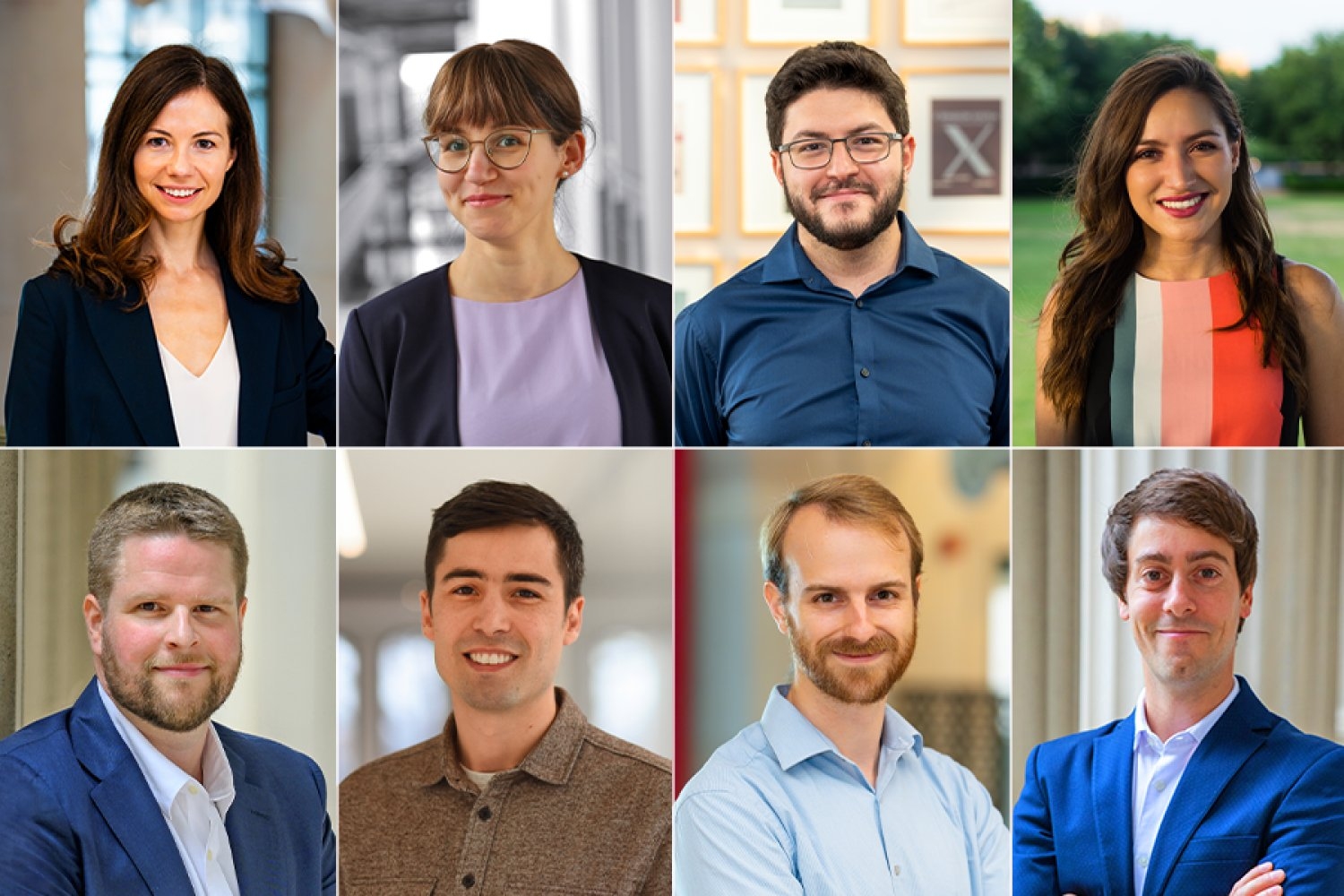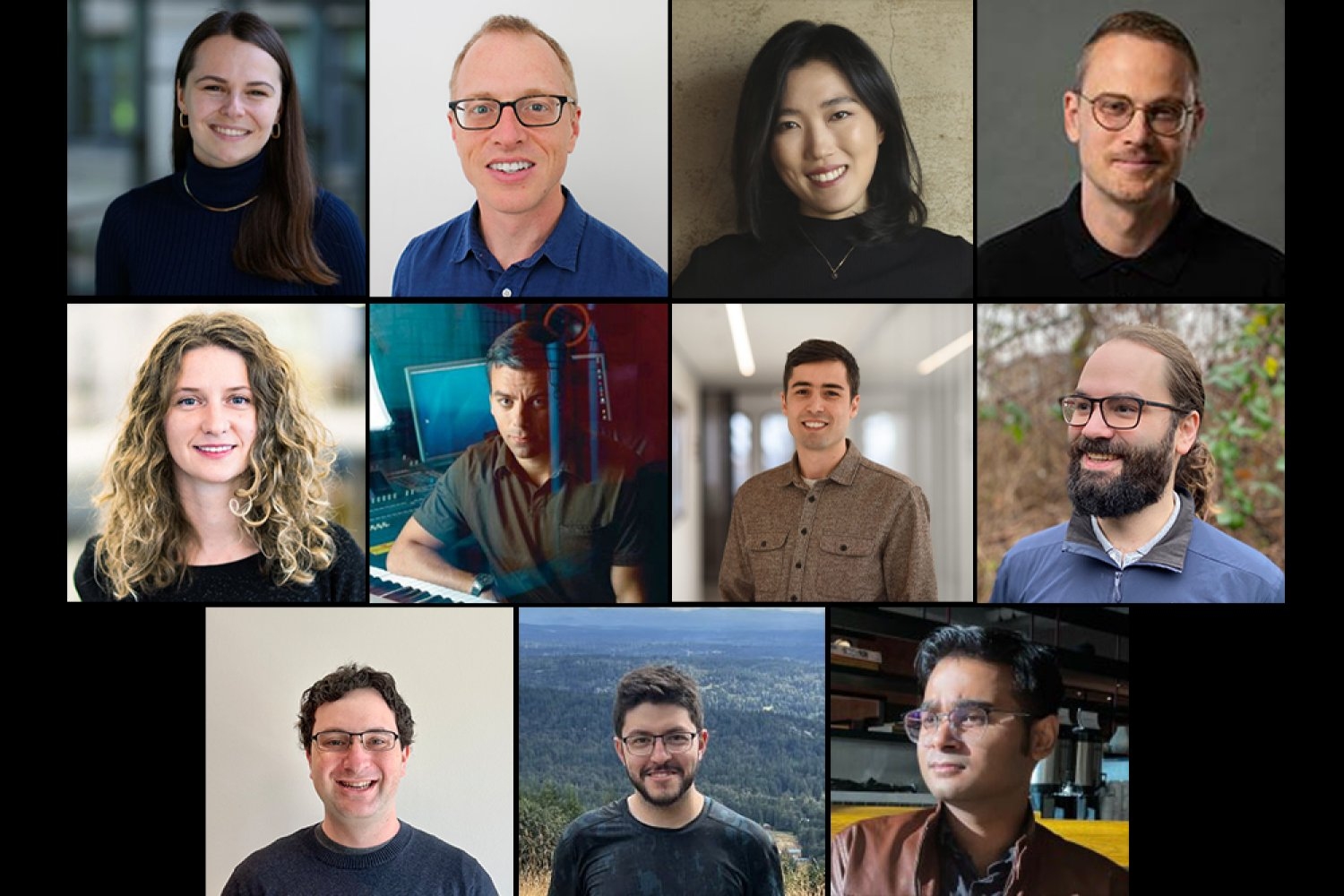MIT Schwarzman College of Computing and MBZUAI launch international collaboration to shape the future of AI
The MIT Schwarzman College of Computing and the Mohamed bin Zayed University of Artificial Intelligence (MBZUAI) recently celebrated the launch of the MIT–MBZUAI Collaborative Research Program, a new effort to strengthen the building blocks of artificial intelligence and accelerate its use in pressing scientific and societal challenges.
Under the five-year agreement, faculty, students, and research staff from both institutions will collaborate on fundamental research projects to advance the technological foundations of AI and its applications in three core areas: scientific discovery, human thriving, and the health of the planet.
“Artificial intelligence is transforming nearly every aspect of human endeavor. MIT’s leadership in AI is greatly enriched through collaborations with leading academic institutions in the U.S. and around the world,” says Dan Huttenlocher, dean of the MIT Schwarzman College of Computing and the Henry Ellis Warren Professor of Electrical Engineering and Computer Science. “Our collaboration with MBZUAI reflects a shared commitment to advancing AI in ways that are responsible, inclusive, and globally impactful. Together, we can explore new horizons in AI and bring broad benefits to society.”
“This agreement will unite the efforts of researchers at two world-class institutions to advance frontier AI research across scientific discovery, human thriving, and the health of the planet. By combining MBZUAI’s focus on foundational models and real-world deployment with MIT’s depth in computing and interdisciplinary innovation, we are creating a transcontinental bridge for discovery. Together, we will not only expand the boundaries of AI science, but also ensure that these breakthroughs are pursued responsibly and applied where they matter most — improving human health, enabling intelligent robotics, and driving sustainable AI at scale,” says Eric Xing, president and university professor at MBZUAI.
Each institution has appointed an academic director to oversee the program on its campus. At MIT, Philip Isola, the Class of 1948 Career Development Professor in the Department of Electrical Engineering and Computer Science, will serve as program lead. At MBZUAI, Le Song, professor of machine learning, will take on the role.
Supported by MBZUAI — the first university dedicated entirely to advancing science through AI, and based in Abu Dhabi, U.A.E. — the collaboration will fund a number of joint research projects per year. The findings will be openly publishable, and each project will be led by a principal investigator from MIT and one from MBZUAI, with project selections made by a steering committee composed of representatives from both institutions.
Latest Campus News
- MIT Maritime Consortium releases “Nuclear Ship Safety Handbook”First-of-its-kind handbook serves as a guide for design safety for civilian nuclear ships.
- Solar energy startup Active Surfaces wins inaugural PITCH.nano competitionTwelve START.nano companies competed for the grand prize of nanoBucks to be used at MIT.nano’s facilities.
- MIT Global Seed Funds catalyze research in over 20 countriesLaunched in 2008, the program has expanded exponentially and spent $30 million on high-impact research.
- Alan Whitney, MIT Haystack Observatory radio astronomer who pioneered very long baseline interferometry, dies at 81Longtime research scientist who served as associate director and interim director helped guide Haystack to decades of influential leadership in the development and refinement of the VLBI technique.
- School of Engineering welcomes new faculty in 2024-25The newest MIT engineering faculty are conducting research across a diverse range of subject areas.
- MIT Schwarzman College of Computing welcomes 11 new faculty for 2025The faculty members occupy core computing and shared positions, bringing varied backgrounds and expertise to the MIT community.



